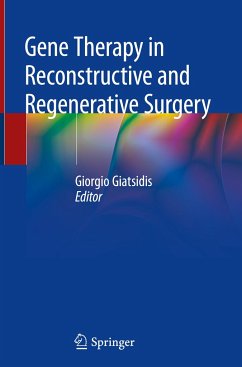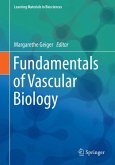This book offers an updated overview of the most recent research advances in the field, a comparison of established techniques and methods, a discussion on current experimental and translational challenges, and a commentary on potential opportunities and future directions.
Dedicated chapters address and review the preclinical and clinical state-of-the-art of gene therapies for the reconstructive and regenerative surgery of skin and wounds, pathological scars, cartilage, tendons, skeletal muscles, and bio-engineered flaps. A brief guide to developing gene therapy clinical trials in the context of reconstructive and regenerative surgery is also provided.
Biomedical and technological innovations are transforming our capacity to use gene therapies to safely and effectively repair, reconstruct, and regenerate tissues that are deficient or have been damaged by trauma and diseases. The targeted and controlled modulation of gene expression in tissues represents a game-changing, next-generation therapeutic tool for the modern reconstructive surgeon, expanding the horizon of regenerative surgery and tissue engineering. Through gene therapies, surgeons can direct (stem) cell differentiation and cell function, modulate the release of growth/transcriptional factors, affect the biological properties of regenerative scaffolds, control tissue inflammation, or induce immune-suppression in composite tissue allotransplants and xenotransplants.
Written by renowned reconstructive surgeons and leading experts in each of these fields - from top academic institutions around the globe, the book provides an initial practical guide for veteran and newcomer surgeons alike, as well as for researchers interested in exploring the latest gene-based therapeutic strategies for reconstructive and regenerative surgery.
Dedicated chapters address and review the preclinical and clinical state-of-the-art of gene therapies for the reconstructive and regenerative surgery of skin and wounds, pathological scars, cartilage, tendons, skeletal muscles, and bio-engineered flaps. A brief guide to developing gene therapy clinical trials in the context of reconstructive and regenerative surgery is also provided.
Biomedical and technological innovations are transforming our capacity to use gene therapies to safely and effectively repair, reconstruct, and regenerate tissues that are deficient or have been damaged by trauma and diseases. The targeted and controlled modulation of gene expression in tissues represents a game-changing, next-generation therapeutic tool for the modern reconstructive surgeon, expanding the horizon of regenerative surgery and tissue engineering. Through gene therapies, surgeons can direct (stem) cell differentiation and cell function, modulate the release of growth/transcriptional factors, affect the biological properties of regenerative scaffolds, control tissue inflammation, or induce immune-suppression in composite tissue allotransplants and xenotransplants.
Written by renowned reconstructive surgeons and leading experts in each of these fields - from top academic institutions around the globe, the book provides an initial practical guide for veteran and newcomer surgeons alike, as well as for researchers interested in exploring the latest gene-based therapeutic strategies for reconstructive and regenerative surgery.








